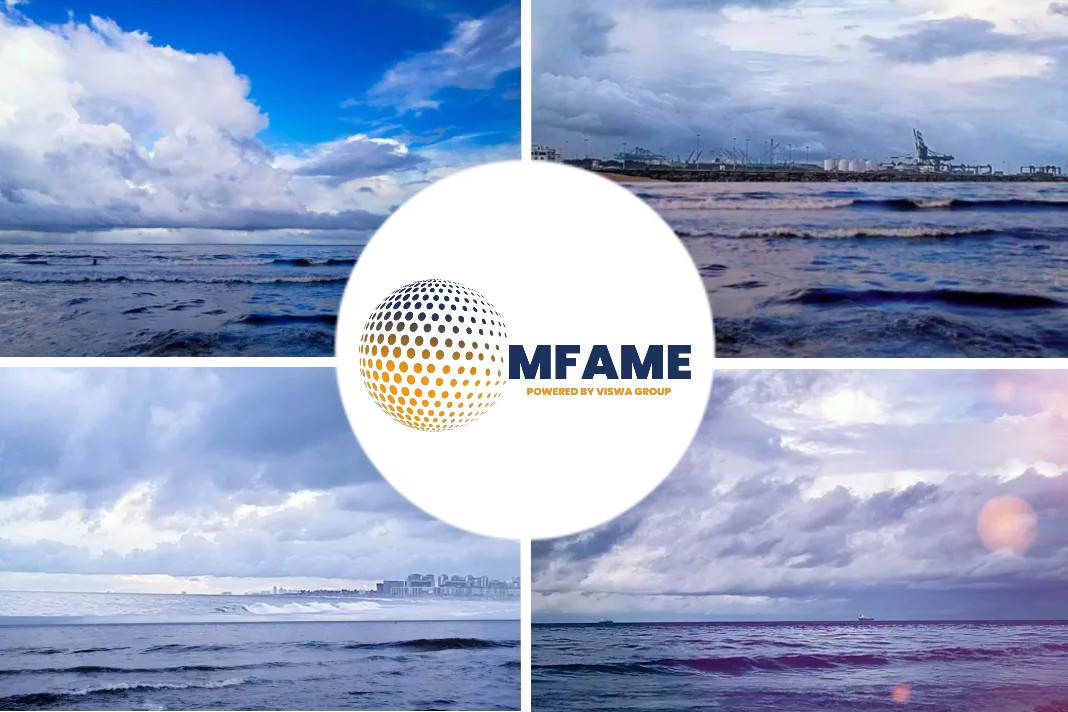The latest Maritime Safety Information Bulletin from the U.S. Coast Guard Commandant highlights maintaining maritime commerce and identifies essential maritime critical infrastructure workers.
Uninterrupted flow of commerce
The commandant says :
- The uninterrupted flow of commerce on the Marine Transportation System (MTS) is critical to both National Security and economic vitality.
- During the ongoing national emergency, it is paramount that the continued operation of the MTS is safeguarded in the face of the threats posed by the COVID-19 pandemic.
The MTS provides more than 90 percent of the domestic supply chain and is dependent on an extensive support network, comprised of workers from both the private and public sectors.
“Essential Critical Infrastructure Workers”
Memorandum issued by CISA
On March 19, 2020, the Cybersecurity and Infrastructure Security Agency (CISA), within the Department of Homeland Security (DHS), issued a memorandum that developed an initial list of “Essential Critical Infrastructure Workers”.
This was to help State and local officials as they work to protect their communities while ensuring continuity of functions critical to public health and safety, as well as economic and national security.
MSIB
The CISA memorandum and this MSIB are advisory in nature and quarantine orders and their enforcement are ultimately up to State and local officials. This MSIB should be used to provide further clarification when making determinations regarding which MTS workers are considered essential in regions impacted by COVID-19 quarantine and shelter-in-place orders.
Personnel essential
The following list of personnel though not meant to be an exhaustive list, are essential for sustaining the continuous flow of maritime commerce:
- Merchant mariners;
- Federal and state pilots;
- Stevedores, longshoremen, and line handlers;
- Representatives of seafarers’ welfare and labor organizations;
- Marine consultants, naval architects, marine exchanges, surveyors and shipyard workers;
- Classification Society and Recognized Organization surveyors and auditors;
- Vessel owners, operators, shipping agents and marine dispatchers;
- Technical representatives and contractors;
- Bridge operators and bridge repair personnel;
- Lock and Dam operators and workers;
- Lighthouse servicing and repair personnel;
- Commercial barge fleeting facility personnel;
- Equipment, cargo, crane and dredging operators;
- Truck drivers, launch/tug towing operators and other intermodal transportation workers;
- Vendors and ship chandlers providing ship services, husbandry and provisions;
- Federal & State Agency personnel (e.g., Coast Guard, Customs and Boarder Protection, Centers for Disease Control and Prevention, Army Corps of Engineers, local health & safety organizations)
MSIB’s select sections from the CISA guidance memo
In addition to the examples above, this MSIB has some select sections from the CISA guidance memo, given below.
Though not exhaustive these are examples of where essential MTS workers may be found in the memo. Information in bold has been added by the Coast Guard to this MSIB for further clarification.
Transportation and Logistics
- Employees supporting or enabling transportation functions, including
- truck drivers,
- bus drivers,
- dispatchers,
- maintenance and repair technicians,
- warehouse workers,
- truck stop and rest area workers, and
- workers that maintain and inspect infrastructure (including those that require cross-jurisdiction travel) .
- Maritime transportation workers –
- port workers,
- mariners,
- equipment operators – (This includes Port and facility security personnel and other Port authority and commercial facility personnel).
- Employees who repair and maintain vehicles, aircraft, rail equipment, marine vessels, and the equipment and infrastructure that enables operations that encompass movement of cargo and passengers.
- Employees supporting or enabling transportation functions, including dispatchers, maintenance and repair technicians, warehouse workers, truck stop and rest area workers, and workers that maintain and inspecting infrastructure (including those that require cross-border travel).
Petroleum Workers
- Petroleum product storage, pipeline, marine transport, terminals, rail transport, road transport.
- Crude oil storage facilities, pipeline, and marine transport.
- Petroleum refinery facilities.
- Retail fuel centers such as gas stations and truck stops, and the distribution systems that support them.
Hazardous Materials
- Workers who support hazardous materials response and cleanup-To clarify this includes Oil Spill Removal Organizations and Salvage and Marine Firefighting Response Companies. Additionally, this includes response and cleanup of petroleum products.
Critical Manufacturing
- Workers necessary for the manufacturing of
- materials and products needed for medical supply chains, and
- for supply chains associated with transportation, energy, communications,
- food and agriculture,
- chemical manufacturing, nuclear facilities,
- the operation of dams, water and wastewater treatment,
- emergency services, and the defense industrial base.
Additionally, workers needed to maintain the continuity of these manufacturing functions and associated supply chains.
Healthcare/ Public Health
- Workers performing security, incident management, and emergency operations functions at or on behalf of healthcare entities including healthcare coalitions, who cannot practically work remotely – To clarify this includes maritime specific medical providers who meet shipboard medical needs for maritime crews.
Specific maritime identification
Many MTS workers will have a federal Transportation Worker Identification Card (TWIC) that may be used to confirm their MTS nexus. However, many others in the support framework will not have specific maritime identification or may be in the process of applying for a TWIC. In any cases where there is a question, state officials are highly encouraged to engage directly with their local Coast Guard Captain of the Port to confirm whether the worker is essential to MTS operations.
Did you subscribe to our daily newsletter?
It’s Free! Click here to Subscribe!
Source: USCG

















